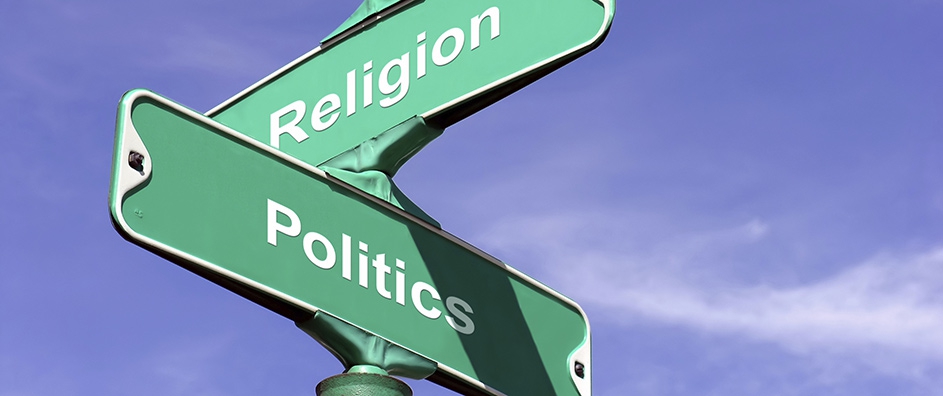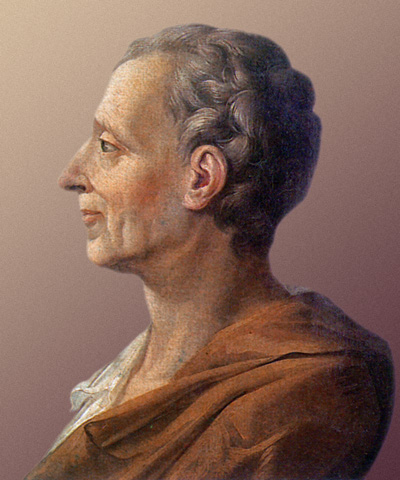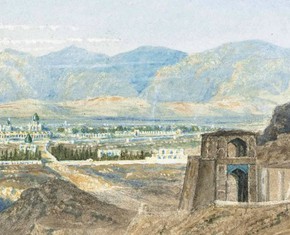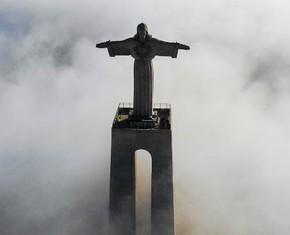The views expressed in our content reflect individual perspectives and do not represent the authoritative views of the Baha'i Faith.
The Baha’i teachings strongly and vociferously oppose centralized despotism and tyranny.
For the last forty years of his life, Baha’u’llah suffered torture, exile and imprisonment, all ordered and enforced by tyrants and despots who ruled the Persian government and the Ottoman Empire. He spoke out against such despots and their oppressive regimes repeatedly, even sending a series of letters and tablets to the kings, rulers and religious leaders of the world, announcing the revelation he had received and summoning them to universal peace, unity and international cooperation.
Baha’u’llah called on the world’s political leaders to establish peace with other nations, treat their subjects justly, reduce the burden of unfair taxation for arms and warfare, and address the terrible poverty among their people. Beginning with Baha’u’llah’s strong opposition to tyrannical government power, the Baha’i writings advocate a federated model of nations in a united world order. Abdu’l-Baha expressed this pivotal Baha’i principle to a high official of the United States government, saying:
You can best serve your country if you strive, in your capacity as a citizen of the world, to assist in the eventual application of the principle of federalism underlying the government of your own country to the relationships now existing between the peoples and nations of the world. – The World Order of Baha’u’llah, p. 37.
So given this firm Baha’i concept of a decentralized federation of nations without tyranny or despotism – do the Baha’is take part in the political process?
No. Baha’is abstain from partisan politics, and see their Faith as essentially non-political.
So how do the Baha’is conceive of a future world order, if not as a political organization? And how, many people have asked, can there even be a world order without some kind of political engagement and involvement? Isn’t a partisan political system inevitable? And what about the Baha’i principle of world unity – if that comes about, won’t the Baha’is want to have a hand in governing the world?
To begin to answer those questions, let’s initially look at how the Baha’i teachings conceive of a future world order, from the writings of Shoghi Effendi, the Guardian of the Baha’i Faith:
The unity of the human race, as envisaged by Baha’u’llah, implies the establishment of a world commonwealth in which all nations, races, creeds and classes are closely and permanently united, and in which the autonomy of its state members and the personal freedom and initiative of the individuals that compose them are definitely and completely safeguarded. This commonwealth must, as far as we can visualize it, consist of a world legislature, whose members will, as the trustees of the whole of mankind, ultimately control the entire resources of all the component nations, and will enact such laws as shall be required to regulate the life, satisfy the needs and adjust the relationships of all races and peoples. A world executive, backed by an international Force, will carry out the decisions arrived at, and apply the laws enacted by, this world legislature, and will safeguard the organic unity of the whole commonwealth. A world tribunal will adjudicate and deliver its compulsory and final verdict in all and any disputes that may arise between the various elements constituting this universal system. – The World Order of Baha’u’llah, p. 202.
The Baha’i vision of a new world commonwealth of nations incorporates three classic elements — a democratically-elected world legislative body; a world executive; and a world tribunal. The idea of these balanced governmental components, familiar to the citizens of many of the world’s sovereign countries, was first propounded by Aristotle, used by the Greeks and Romans in their early democracies, and then further developed by the French Enlightenment political philosopher Baron de Montesquieu in 1748. Called the tripartite system, this built-in division of political power between three branches of government – legislative, executive and judicial — avoids the excessive centralization and potential tyranny of an oligarchy or a dictatorship. Most enlightened democratic governments use the tripartite system today, and the Baha’i teachings recommend its application on a worldwide scale.
The Baha’i writings say that this vision of a world commonwealth, the dream of the earth’s poets, philosophers and prophets for millennia, can only come about when:
… a certain number of its distinguished and high-minded sovereigns … shall, for the good and happiness of all mankind, arise, with firm resolve and clear vision, to establish the Cause of Universal Peace. They must make the Cause of Peace the object of general consultation, and seek by every means in their power to establish a Union of the nations of the world. They must conclude a binding treaty and establish a covenant, the provisions of which shall be sound, inviolable and definite. They must proclaim it to all the world and obtain for it the sanction of all the human race. This supreme and noble undertaking — the real source of the peace and well-being of all the world — should be regarded as sacred by all that dwell on earth. All the forces of humanity must be mobilized to ensure the stability and permanence of this Most Great Covenant. In this all-embracing Pact the limits and frontiers of each and every nation should be clearly fixed, the principles underlying the relations of governments towards one another definitely laid down, and all international agreements and obligations ascertained. In like manner, the size of the armaments of every government should be strictly limited, for if the preparations for war and the military forces of any nation should be allowed to increase, they will arouse the suspicion of others. – Abdu’l-Baha, The Secret of Divine Civilization, p. 64.
You May Also Like
Comments


















However government by religious authorities would not be accepted by the secular, would be contrary to the teachings of the Bahai Faith and unacceptable to many other believers, and would be a practical disaster. The study of scripture and doctrine is not a good ...preparation for the task of governing. Abdu'l-Baha writes:
"If you refer to history, you would find countless [disastrous] examples of this sort, all based on the involvement of religious leaders in political matters. These souls are the fountainhead of the promulgation of God's commandments, not of implementation. That is, when the government enquires as to the requirements of the Law of God and the realities of the divine ordinances, in principle or in a specific case, they must explain what they have deduced from the commands of God and what is in accordance with the law of God. Apart from this, what awareness do they have of questions of leadership and social development, the administration and control of weighty matters, worldly well-being and happiness, the improvement of procedures and codes of temporal law, or foreign affairs and domestic policy?"
(Abdu'l-Baha, Sermon on the Art of Governance)